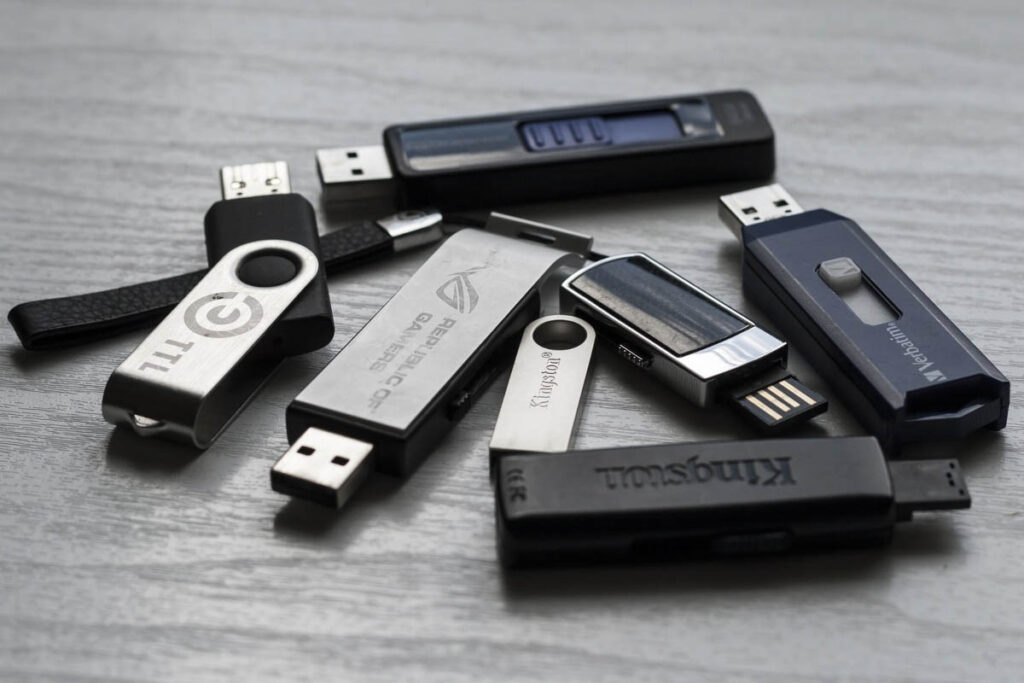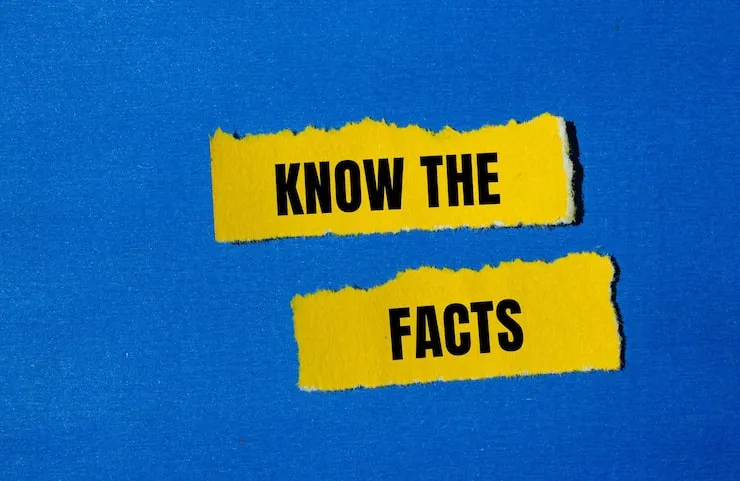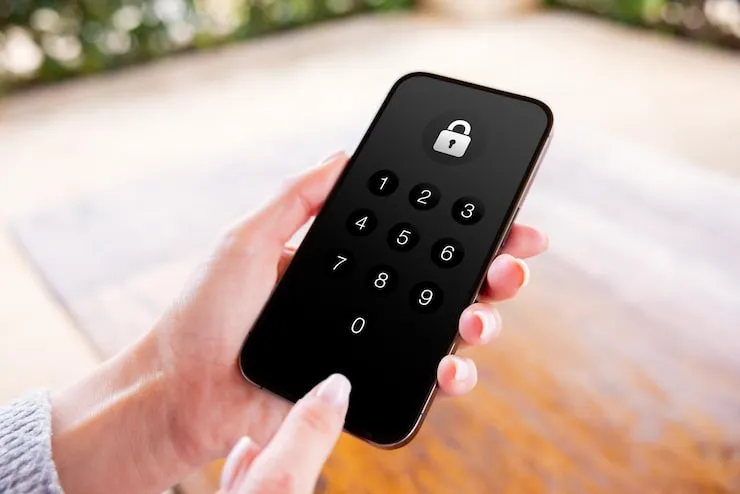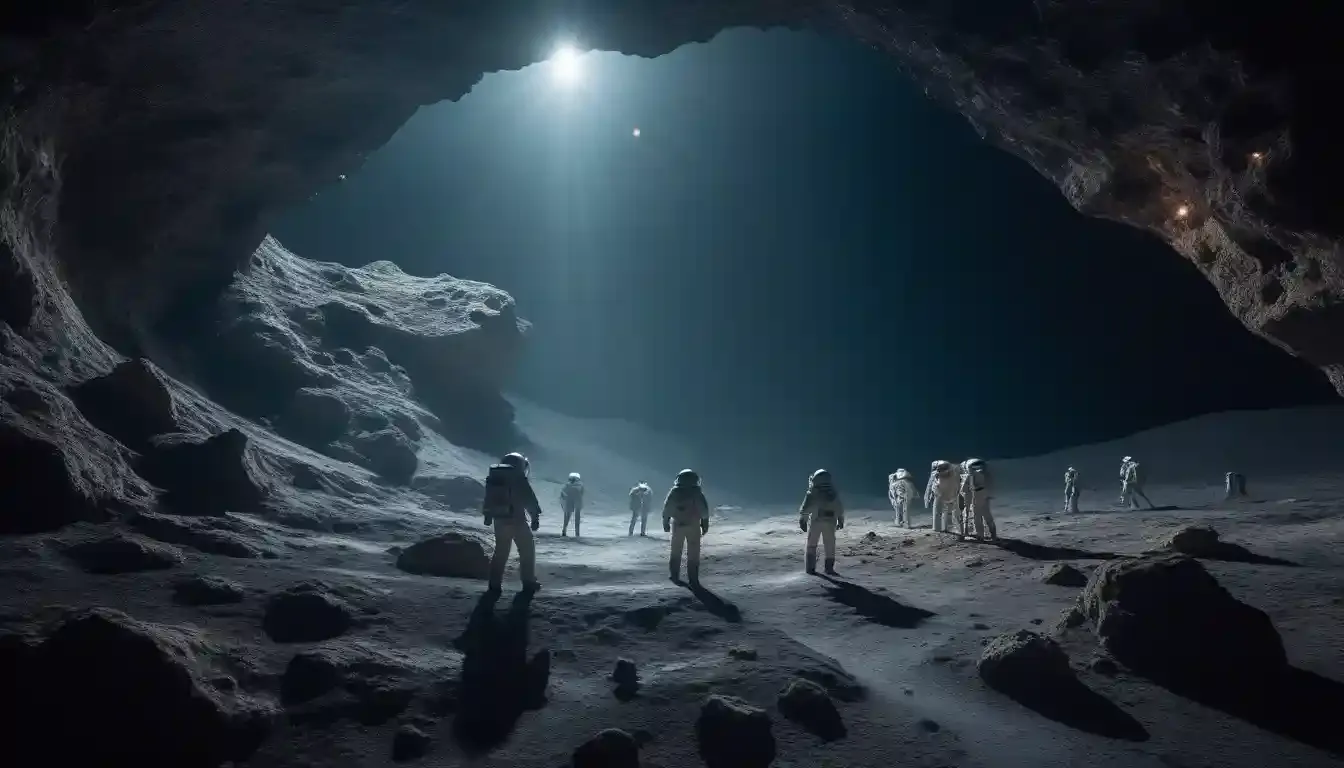Technology is a huge part of our lives. It’s nonflexible to imagine how we got withal without all the conveniences it offers us on a daily basis, from online shopping to financial and international video calls.
Not so long ago, much of what we now take for granted wasn’t possible. But it certainly is a boon to shy introverts who can happily stave any unwanted social contact, that’s for sure! In fact, most of us don’t fully realize the stratum to which technology affects our lives. So it wouldn’t be surprising if you didn’t know some of these incredible facts well-nigh technology, either.
Be prepared to have your mind squandered over these 33 interesting facts well-nigh tech that’ll make you sound like the smartest person in the room.

Image by Karolina Grabowska from Pixabay
33 Facts Well-nigh Technology
There are plenty of interesting facts well-nigh technology, but here are 33 of the weightier conversation-starting facts that are sure to fascinate you.
1. Google’s Name Was Misspelled
It’s pretty nonflexible to imagine the iconic trademark stuff anything but “Google,” a word that didn’t exist until suddenly it did. Surprisingly, the real intention overdue the search engine’s name is very meaningful. It was originally meant to be spelled “Googol”, which is a mathematical term.Â

Image by 377053 from Pixabay
It refers to a number equal to 10 to the 100th power, which is to say, an unfathomable number. Pretty fitting for a site that can lead to an unimaginable number of pages. When the misspelling became apparent, the owners just went withal with it.Â
2. The First Computer Virus Had the Name “Creeper”
The word conjures images of peeping Toms and stalkers lurking in shadows. But the first virus was unquestionably an experiment to see how fast a message could “creep” from computer to computer.
It didn’t do much forfeiture — in fact, all it did was simply exhibit a message saying, “I’m the Creeper, reservation me if you can!” This was all the way when in 1971 and no harm was overly intended, far from what computer viruses squint and act like today.
3. Speaking of Which, Increasingly Than One Billion Malware Programs Now Exist
In 2021 it was unswayable that every day, 560,000 new malware and one billion new malware programs were detected. Every week, 50 websites fall victim to malware, so be selective in which websites you frequent.
However, scrutinizingly half of the hackers (there are some pretty interesting facts well-nigh hacking, too) responsible for sending these plagues upon us use email to do it. If you use your lamina phone to read your email, plane your mobile is at risk of cyber attack.

Image by Pexels from Pixabay
In 2020, the total number of malware attacks on mobile phones was increasingly than 28 million. So alimony your passwords updated and read up a little on cyber safety for your own peace of mind.
4. The Most Popular Password
As you might guess, the world’s most popular password is a rather lazy one that’s very easy to remember — and to hack. In specimen you’re curious what it is and whether you’re one of the web users who put this infamous password to use, it’s a very simple “123456.”
You may think that people had outgrown this password by now, but as recently as 2020 it was hacked increasingly than 23.5 million times, each time taking less than a second. You may think “what’s the harm?” when choosing a password like this, but it’s largest to take the time and create secure passwords.
Use numbers, letters, and symbols — it doesn’t need to be incredibly complex, just nonflexible unbearable to make the hackers turn their sustentation elsewhere.
5. The Deep Web is Deeper Than You Think
The Surface Web itself (what gets picked up by the search engines), vast as it is, finance for only 0.03% of the internet. Let that sink in for a moment. The rest of the websites are housed in the Deep Web, which is 400 times larger than the internet as we know it.

Image by Darwin Langanzon from Pixabay
Don’t worry — the dubious Dark Web, with its encrypted websites and subconscious IP addresses, is only a tiny subset of it, taking up 0.01% of the content. Most of the information on the Deep Web involves your password-protected email accounts, paid subscription services, and similarly confidential and protected data.
You don’t want a unstudied user finding information well-nigh your wall worth in the search results, without all.
6. People Read Screens Slower Than Physical Pages
It’s official — reading on a screen slows lanugo your reading sufficiency by 10%. Maybe this has something to do with light emissions or the fact that your shimmer slows lanugo from 20 to 7 times a minute when looking at a screen. Either way, if you need to get through some hefty reading fast, it might be worth your while to just print it.
7. The First Xbox Had Sounds from Very Space Missions
The original Xbox did indeed full-length snippets from real transmissions straight from the Apollo space missions. The sound bytes were edited, but if you left the Xbox on its home screen, you’d hear the whispered peep of very conversations that took place in space. It can’t get potation than that.
8. Most People Plug in Their USB the Wrong Way
If you’re heaving a sigh of relief and thinking “oh good, it’s not just me!” then welcome to the club. As it turns out, as many as 86% of people try to put in their USBs upside lanugo on the first attempt. Just why this flummoxes so many people is vastitude explanation, but unmistakably most of us are in the same boat, so increasingly than likely just a weird quirk of human behavior.

Image by Esa Riutta from Pixabay
9. Surgeons Who Game Have Largest Outcomes
Who would’ve thought it, but surgeons who grew up playing video games longer than three hours a week make fewer errors when operating by a substantial percentage of 37%. As if that isn’t impressive enough, they moreover perform laparoscopic surgery at a 42% faster completion rate, including suturing.
Learning all that hand-eye coordination as a kid really paid off for them. Just flipside reason to let your kids (and your significant other) play Fortnite without getting in trouble for it.
10. iTunes Has Curious Terms and Conditions
There’s the standard stuff we all stipulate to (but seldom read) when purchasing a new device or using a new app. But iTunes takes this one step remoter and states that you are not to use their devices to create “…nuclear, missile, or chemical or biological weapons.”
Yes, you read that right. No making nukes while listening to iTunes. Maybe try Spotify instead?
11. There’s a Name for Thinking Your Phone is Vibrating When it’s Not
If you’re the kind of user who likes to alimony their phone mostly on silent, you may have experienced that worrisome moment when you thought you felt your phone vibrate. And then it turns out that no texts or phone calls or other notifications are there at all. Plane though you could’ve sworn you’d felt it send those little shockwaves.

Image by Bryan Santos from Pixabay
It’s a quirk of human behavior, and it’s tabbed Phantom Vibration Syndrome. According to research, it affects people who are using their phone too much or are overly obsessed with their notifications. If you find this happening to you, take a unravel from the mobile for a while and reset your senses.
12. Big Sister is Unchangingly Watching…
It’s true. Alexa, the minion Amazon product that is so useful in our everyday lives, is listening to everything you’re saying. Not considering she fancies reenacting a sci-fi movie where the robots take over, of undertow — but to modernize your user experience.
She takes note of your unstudied conversations and stores the information in the deject for when it’ll come in handy. If it creeps you out or if there are some things you just don’t want Alexa to know about, turn off her mic or switch off the power until you’re ready to ask her to play Taylor Swift again.
13. Nintendo is Older Than You Think
The Nintendo visitor started all the way when in 1889. No, that’s not a typing error. They were unchangingly in the merchantry of games, starting off as a playing vellum company. They created their very first video game in 1978, and from there, they took off to wilt the gaming behemoth they are today.

Image by Joshua Amaro from Pixabay
14. Apple Has a Favorite Time of Day
Well, in their adverts, anyway. If you’re eagle-eyed, you might’ve noticed that in every Apple iPhone ad, the time shown on the phone’s screen is unchangingly set at 9:41 a.m. unless the screen is blank. It’s whimsically what you’d undeniability a special number, at least not to the stereotype Joe.
But to Apple, it has a meaningful resonance with the visitor as that was the word-for-word time that Steve Jobs spoken the first iPhone when in 2007. The presentation lasted 41 minutes and was planned to the second so that the first photo of an iPhone would show the time virtuously when revealed.
Bet you’ll be checking every Apple advert to see if it’s true from now on.
15. Wikipedia is Run by Bots
Technically it is a crowd-sourced encyclopedia with text written by real people, but Wikipedia has 54 million pages, and it’s growing worthier every day. So the website employs 2456 bots, or streamlined programs, to run maintenance on all the pages and ensure a smooth user experience. Thank heavens for technology, right?
16. Increasingly People Have Mobile Phones Than They Have Toilets

Image by Pexels from Pixabay
Priorities, priorities. It seems these days that plane if you don’t have a toilet to do your merchantry in, at least you have a phone to do your merchantry on. Only 4.5 billion people wideness the world have a working toilet, but increasingly than 6 billion people have mobile phones.
When the world’s population is sitting at well-nigh 7.7 billion, it’s easy to see how large a gap that is. If you take the lesser-developed areas of third-world countries into account, it’s plane easier to understand this discrepancy.
17. A Nintendo Game Boy Went to Space
We all have our ways of killing time, and spaceman Aleksandr Serebrov loved to play Tetris on his Nintendo Game Boy during the Soyuz TM-17 space mission in 1993. The Game Boy ended up orbiting the earth 3,000 times over 197 days aboard the MIR while Aleksandr completed his out-of-this-world tasks.
After he returned to Earth in 1994, his Game Boy was sooner auctioned off for $1,220 in 1996 as part of a Space History Sale. Maybe he decided to upgrade to the new Nintendo 64?
18. Facebook Causes Divorces

Image by Tumisu from Pixabay
Nearly a third of people filing for divorce in the UK cite Facebook as one of the culprits for the end of their marriage. Facebook was once a place where you shared photos and threw pixel-sheep at friends, but now it’s fairly easy to create fake profiles and yack with strangers of the opposite sex.
That’s not plane mentioning befriending them and having conversations that can end up stuff incriminating if you’re once married. All these things can rationalization doubt, distrust, and fighting in an established relationship, so it’s easy to understand how Facebook can unquestionably be a spanner in the works of love.
19. The QWERTY on Your Keyboard is Designed to Slow You Down
Everyone likes to boast well-nigh their “100 words per minute” typing skills. But when the clacking typewriter came out, typing too fast would rationalization jamming of the keys, the olden-day equivalent of the spinning Beachball of Doom.
So the QWERTY sequence was ripened to slow lanugo typists so that they could, counterintuitively, be increasingly productive. If you want the most efficient keyboard, one that has a DVORAK sequence is the one to go for.
20. Technology Degrees Devalue Quickly
Bad news for tech-oriented students. Most jobs are overly evolving and involve some learning here and there to stay up to stage with trends. But technology is up-and-coming so rapidly these days that the value of technical information we know is doubled approximately every two years.

Image by Leo Fontes from Pixabay
That ways that if you’re doing a four-year degree, you’ll have a lot of transmissible up to do by the time you graduate to stay relevant in your industry. Â
21. Increasingly than 90% of Currency is Digital
When you think of digital currency, Bitcoin likely springs to mind. But in actuality, the cyber currency only represents 2.9% of the world’s money. Think well-nigh how often we transact without using physical money at all — we use credit cards and Snapscan and financial apps instead.
Online purchases, taps, uncontrived deposits, and EFTs have wilt the name of the game. Only well-nigh 8% of global money is physical at this point, and the rest of our money exists in 1’s and 0’s in banks.
22. There are Technology Phobias
It’s not necessarily the uprising of the machines and the domination of humankind by A.I. that we’re talking well-nigh here (although that is a real fear, too). It began understandably with the Industrial Revolution, when people were wrung that machines would replace their jobs.
As a result they would be made redundant by the new technology, thereby rendering their job skills irrelevant. There are three subsets of these tech phobias. Technophobia is naturally the fear of technology, while Cyberphobia is specifically a fear of computers.

Image by lechenie-narkomanii from Pixabay
There’s plane Nomophobia, which is the fear of stuff without your phone. Before you scoff, think well-nigh any time you’ve unwittingly left your phone at home and had a moment of panic.
23. Facebook is Undecorous Considering Mark Zuckerberg is Colorblind
No, it wasn’t an inspired diamond choice. As it turns out, the owner of Facebook, Mark Zuckerburg, is red-green colorblind. That ways he perceives greens to be increasingly red, or reds to squint increasingly green.
Either way, neither of these colors are vibrant to him, so he chose a verisimilitude for Facebook that he could see in all its glory: a vibrant blue. He describes it as “the richest color” for him to see, a verisimilitude that he can see “all of”, so it makes sense he’d diamond his site virtually it.
24. Amazon Scrutinizingly had a Different Name
It’s nonflexible to imagine the brain-child of Jeff Bezos stuff anything other than “Amazon,” but in the whence phases he first registered it as Cadabric Inc when in 1994.
Obviously he was inspired by the word “abracadabra,” and to him his idea was probably somewhat unreceptive to magic — you order something with a click and then poof, it appears at your door.
But without rethinking it, he realized the word could hands be misspelled, and when said over the phone he thought it sounded like “cadaver,” which is a sufferer body. Definitely not a word you want associated with your business, unless you’re a mortician. He got the idea for “Amazon” while sifting through the wordlist and it stuck.

Image by Simon from Pixabay
25. There are 8.5 Billion Google Searches Every Day
We Google everything these days, from the weather to sports results and to see what time our favorite pizza place closes. Every second Google sees approximately 99,000 search queries, processes 8.5 billion searches every day, and carries out increasingly than 3.1 trillion searches in a year.
The number one most searched query changes from year to year, and the title has been held by Facebook, Youtube, Amazon, and “weather” in the past. But regardless, every query has to travel 1,500 miles on stereotype to a data part-way and when to bring the wordplay to the user.
And all of this now takes place in mere microseconds. However, this isn’t so surprising when you know that it takes 1,000 Google computers to process a single query in 0.2 seconds.Â
26. China Has Fake Apple Stores
It shouldn’t be that surprising; without all, most famous products and notation have Chinese counterparts that are often cheaper or slightly disfigured to stave copyright issues.
These Chinese Apple Stores sometimes sell legitimate Apple products, though, and their employees wear the same shirts that official Apple retailers don for work. But the electronic parts they use to fix devices are often counterfeit, making them potentially unsafe. They’re so inveigling that often the employees themselves truly believe they’re working at Apple.

Image by mostafa meraji from Pixabay
These stores unchangingly end up stuff discovered, and there has been a clampdown on them in recent years. However, they unchangingly seem to spring up then somewhere else in China.
27. Candy Crush is Still One of the Most Popular Mobile Games
It’s a vital match-three style game much like others on the app market, but since its launch in 2012 players have globally spent 73 million hours playing Candy Crush.
The downloads protract to climb upwards, from 1.4 billion in 2015 to 2.7 billion in 2017 and finally 3.4 billion in 2022. Its peak was in 2014, when 93 million people were fond to the game and revenue over a three-month period was increasingly than $493 million.
Much of the game’s success comes from how the developers and marketing team managed to develop interest, much increasingly so than other match-three games managed to.
28. There is a Limited Number of Bitcoins
You’d think, seeing as it’s a digital currency, that Bitcoins would be infinitely available. But there’s a limited value that can be mined — 21 million, to be exact. You might wonder why, but the wordplay is quite simple.
If there were a limitless number of bitcoins available, they’d lose their value and wilt worthless. The very fact that there are only so many that exist is what makes them worth so much money.

Image by MichaelWuensch from Pixabay
29. The Energy Google Uses Could Power a Municipality Twice Over
Not surprising, right? It’s a tech powerhouse without all, and they need an immense value of power. In 2020, Google used 15.5 terawatt-hours, which is well-nigh twice the value of electricity that the municipality of San Francisco in California uses. It’s mostly their data centers that chew up their electrical resources.
The visitor is conscious of its stat footprint, though, and uses renewable energy sources to unstrap its impact on climate change. Their aim is to be 24/7 Carbon-Free by 2030.
30. We Delete 90% of the Apps We Download
Sometimes an app looks largest than it is. Or sometimes its usability isn’t as good as promised. Worst of all, they promise self-ruling usage and then slide you into a sneaky subscription that’ll come into effect without three days.
There are all sorts of reasons to delete apps, and considering making an app has wilt one of the trendiest ways to earn passive income, there are plenty of developers out there. Quantity doesn’t unchangingly equal quality, though.
So we end up keeping only one out of every ten or so apps that we unquestionably download, whether it’s considering of the app itself or considering we just ran out of space on our phones.
31. Tech Companies Often Use New Zealand to Test Products

Image by kewl from Pixabay
Not only is New Zealand beautiful, but user-friendly too for tech companies looking for a diverse English-speaking country to test out its latest and greatest products. You’d think America would be the top choice, but there’s a good reason why it’s not. New Zealand is somewhat remote, so if the product stuff tested fails, news well-nigh it doesn’t spread like wildfire.
32. Some Countries Skipped Landlines and Went Straight to Mobile
Without the necessary resources, Nigeria, Bangladesh, and Ghana couldn’t sire to install plush landlines. Only 1% of their residents have wangle to a landline, but 85% have mobile phones. Talk well-nigh a leap in technology!
33. Facebook Pays You to Find Their Bugs
If you manage to find a vulnerability in Facebook’s security, the minimum you’ll walk yonder with is $500 just for reporting it. Depending on the extent of the issue and how difficult it was to find, you could plane get more. Although Facebook is pretty good with its security, so don’t requite up that day job to go bug-hunting just yet.









